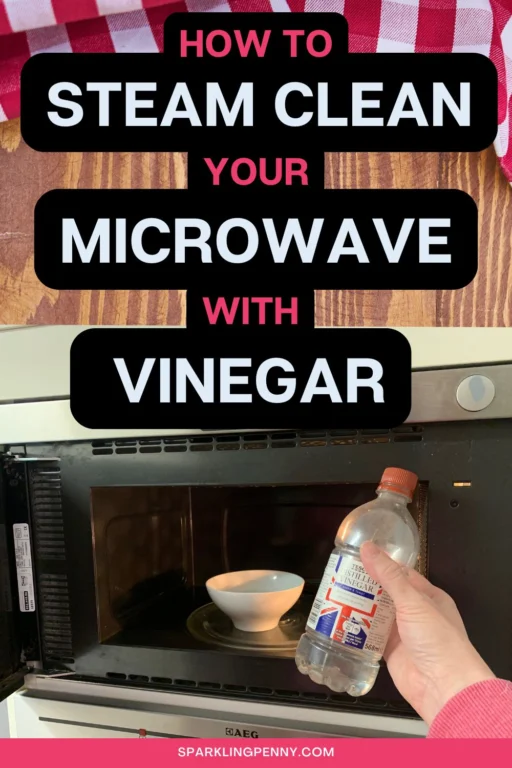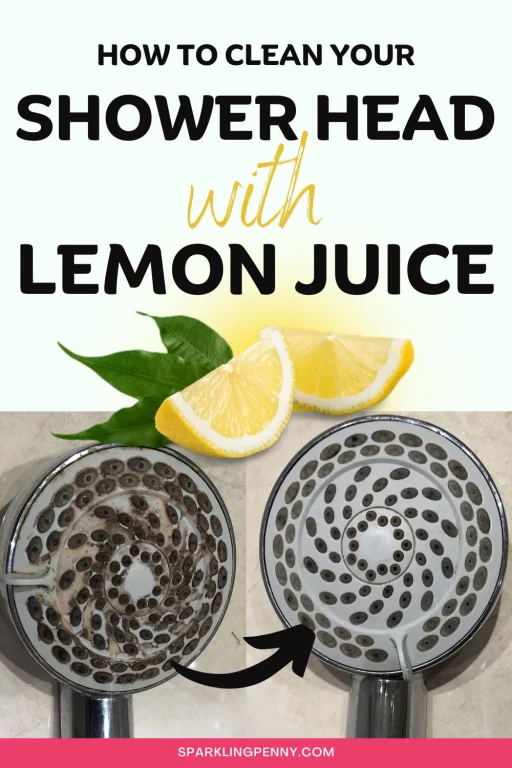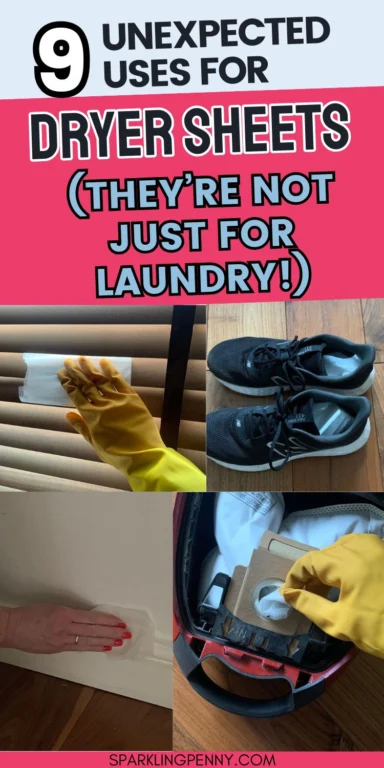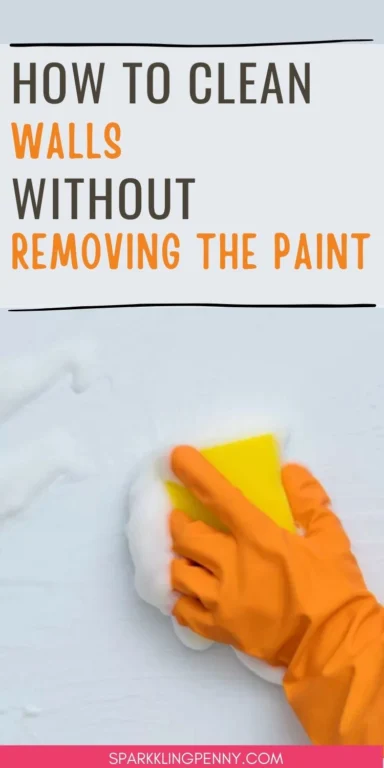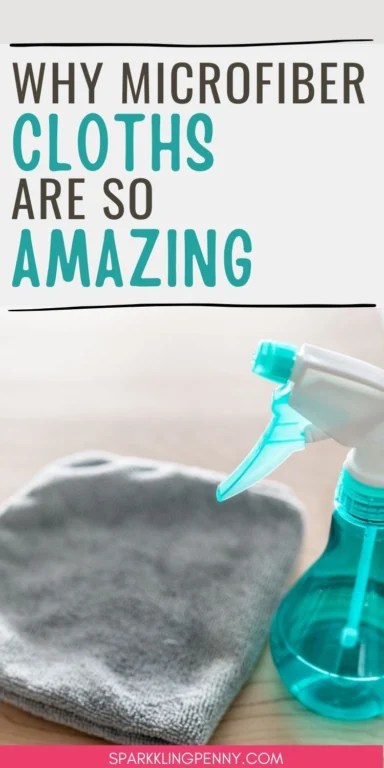My husband inherited some crystal glasses from his late father. Unfortunately, he got into the habit of cleaning them in the dishwasher. Our water is slightly hard and so it wasn’t long before his special glasses became cloudy. We thought those glasses were ruined. Thankfully getting them back to their original sparkle was quite easy because I found out that it was possible to clean cloudy glasses with just toothpaste!
If your precious glasses have turned cloudy you can clean them by rubbing in some toothpaste with an old toothbrush. The toothpaste is mildly abrasive and should remove the mineral deposits quite easily. For stubborn staining try vinegar, lemon juice or acetone instead.
Heads up: I sometimes use affiliate links. When you click these links and make a purchase, I may get a small commission. It won't cost you anything but it helps me to run this site.
Why do glasses turn cloudy in the dishwasher?
If you live in a hard water area then cloudy glasses can be a problem. This is because the soap in the dishwasher has a tough time foaming up. It can’t do its job so well in hard water and the result is that the minerals from the water can stick to surfaces. This is most evident in your glassware. Hard water can also be a factor when your dishwasher smells like wet dog.
Another cause of cloudy glasses is etching. This can happen when the glass gets worn down by little scratches as a result of usage and washing. It’s not possible to cure it, the damage is unsalvagable, unfortunately.
How do you know if the cloudiness on your glasses is due to hard water or due to etching?
Here is a simple test you can do to find out:
- Take a cloudy glass.
- Soak a cloth in distilled white vinegar.
- Wipe the glass.
- If the glass is no longer cloudy the cloudiness is caused by the hard water. If you still have a cloudy glass it is caused by etching.
If the cloudiness isn’t caused by etching then it is a simpler job than you think to get them cleaned up and back to their original sparkle.
As you can see, cleaning your cloudy glass is quite simple using white vinegar, but what if you don’t have that? You might have heard that there is another way too – with toothpaste!
Let’s take a look at how you can clean your cloudy glasses with just toothpaste.
How to clean cloudy glasses with toothpaste

Cleaning your cloudy glasses with toothpaste is a simple way to make glassware sparkle. We all have toothpaste to hand, so it’s a cleaning substance that we all have available.
Why toothpaste?
Toothpaste is mildly abrasive but coarse enough that it can remove the hard water deposits on your glasses.
If you are wondering whether the toothpaste will damage your precious glassware, rest assured because toothpaste is meant to be kind to your teeth, so it will be just as gentle on your glasses.
What you need to clean your glasses with toothpaste
- Toothpaste. Basic toothpaste is best. The gels or whitening pastes won’t be as effective. You need plain toothpaste such as this basic white toothpaste.
- An old toothbrush. Or any kind of small brush. As long as it is clean it is fine.
How to clean cloudy glasses with vinegar
Toothpaste is a simple way to clean your glasses, but if you prefer not to scrub, vinegar is your answer.
Why does vinegar work to clean cloudy glasses?
Vinegar contains acetic acid. The deposits on your glasses consist of hard water minerals which can be dissolved by applying an acid such as vinegar.
What kind of vinegar is best?
Distilled white vinegar is the best kind for cleaning. If you don’t have it at home you will usually find it in the sauces and condiments aisle of your supermarket. If you prefer to buy online it is readily available at Amazon.

I don’t want my glasses smelling like vinegar!
Vinegar has a strong smell. But don’t worry about your glasses smelling like vinegar because the smell wears off very quickly. I recommend you rewash your glasses after removing the mineral deposits anyway. The smell will be gone after the first wash. You certainly won’t taste the vinegar when you use your newly cleaned glasses for the first time.
How to clean cloudy glasses with vinegar
- Fill a bowl with white distilled vinegar.
- Dip your glass into the vinegar for a few seconds. The mineral deposits will dissolve.
- When you remove your glass the cloudiness should be gone.
- Rinse with water.
If you have a lot of staining you will need to soak your glasses in the vinegar solution or scrub with some baking soda. For stubborn marks use a stronger acidic solution such as acetone.
If you have a lot of glasses to clean the above could take some time. Or perhaps you can’t stand the smell? I don’t blame you for that. Here is something you can do instead.
How to clean your cloudy glasses in the dishwasher
- Arrange all your cloudy glasses in the top rack of the dishwasher.
- In the bottom rack put a bowl filled with distilled white vinegar.
- Run a normal cycle without detergent.
At the end of the cycle, your glasses will be sparkling and your dishwasher will be lovely and clean too.
Related reading:
- How to stop your tea cups from getting stained
- How To Clean White Shoes With Toothpaste
- How Vinegar Kills Bacteria In Your Home
- How to Clean Oven Glass With Vinegar and Baking Soda
- Should You Use Vinegar or Bleach To Clean Your Washing Machine?
- How To Clean An Iron Soleplate With Toothpaste
How to clean cloudy glasses with acetone
Acetone has a PH value of 20. So it is a stronger acid than vinegar which has a PH of 2-3. If you have a stubborn buildup of minerals on your glasses that didn’t go away with vinegar, acetone could be your answer.
You can use straight acetone, or an acetone-based nail polish remover (some nail polishes don’t have acetone in them).
- Dampen a cotton ball with acetone or nail polish.
- Wipe the glass gently.
- Rinse with dish soap.
How to clean cloudy glasses using lemon juice
Lemons contain citric acid. Similar to vinegar, lemons can also clean off the hard mineral deposits on your glasses and make them sparkle again. Lemon juice has a lovely fresh smell, so it is a great alternative if you don’t like the smell of vinegar.
For this method use freshly squeezed lemon juice. You can also use bottled lemon juice. Lime juice should work just as well too.
- Mix three tablespoons of lemon juice with one cup of water in a bowl.
- Add your glass to the bowl and leave to soak for 5-10 minutes.
- When you take out the glass you should find the cloudy marks have disappeared.
- Rinse your glass with water and dry.
Pro tip: It depends on the hardness of your water, but I find that if I handwash glasses the cloudiness is reduced considerably. If you have some special glasses that you want to keep crystal clear for longer consider avoiding your dishwasher.
Related reading:
- Can You Use Bottled Lemon Juice For Cleaning? – 17 Tips
- How To Clean A Microwave With Lime Juice
- How To Clean A Microwave With Just Water (no scrubbing)
How to prevent glasses from going cloudy

Now that you have beautiful sparkling glassware that looks new again, let’s keep it that way!
Here are some tips to use to keep your glasses looking fantastic:
- For handwashing. Add a few tablespoons of white distilled vinegar to the washing up water.
- For dishwashing. Add some vinegar to the rinse compartment.
These tips will slow down the build-up of mineral deposits on your glasses. It won’t stop the problem completely, but when you come to clean them up it won’t be a big job.



